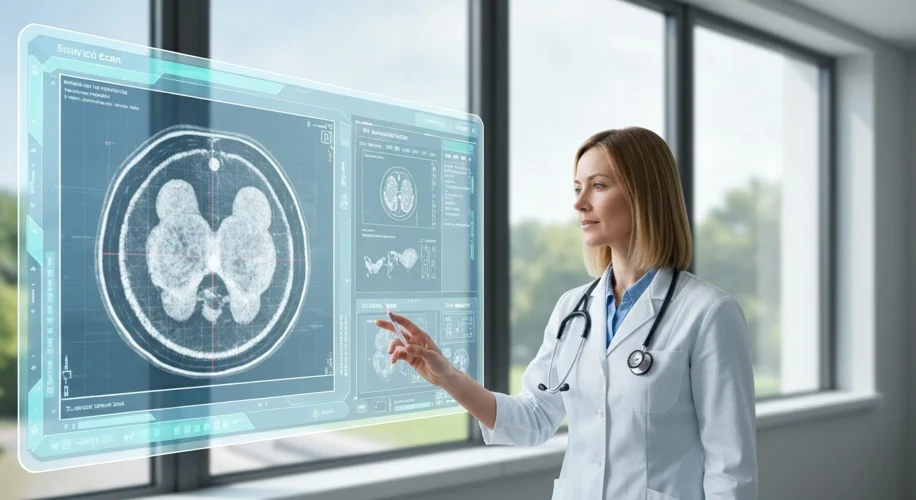The march of artificial intelligence into healthcare continues, and one area where it’s showing significant promise is in cancer diagnostics, particularly prostate cancer.
For years, medical professionals have relied on a combination of imaging techniques and pathology reports to detect and diagnose prostate cancer. However, these methods, while effective, can sometimes be subjective or require highly specialized expertise. This is where AI is beginning to make a real difference.
How AI is Helping in Prostate Cancer Diagnosis
AI algorithms are being trained on vast datasets of medical images, such as MRI scans and digital pathology slides. By analyzing these images, AI can identify subtle patterns and anomalies that might be missed by the human eye. For instance, AI can help radiologists pinpoint suspicious areas in MRI scans with greater accuracy, or assist pathologists in analyzing tissue samples to identify cancerous cells more efficiently.
Research published in journals like Radiology and The Lancet Oncology has demonstrated AI’s potential to improve the accuracy and speed of diagnosis. Some AI models can even predict the aggressiveness of a tumor, which is crucial for determining the most appropriate treatment plan.
The Ethical Balancing Act
While the benefits are clear, integrating AI into such critical healthcare decisions raises important ethical questions. One of the primary concerns is bias. If the data used to train AI models is not diverse enough, the AI might perform less accurately for certain patient populations. For example, an AI trained predominantly on images from one ethnic group might not be as effective for patients from another.
Another key consideration is transparency and explainability. Doctors and patients need to understand why an AI has made a particular recommendation. If an AI flags a scan as potentially cancerous, understanding the reasoning behind that flag is vital for building trust and ensuring proper medical oversight. We must ask ourselves: can we truly rely on a ‘black box’ system for life-altering diagnoses?
Potential Benefits and Challenges
The potential benefits are substantial: faster diagnoses, more accurate detection, reduced workload for clinicians, and potentially more personalized treatment strategies. Imagine a future where AI helps catch cancer earlier and more reliably, leading to better patient outcomes.
However, the challenges are equally significant. Ensuring data privacy and security is paramount. We also need to establish clear regulatory frameworks to govern the use of AI in healthcare, defining accountability when things go wrong. The integration of AI also requires significant investment in infrastructure and training for healthcare professionals.
Parallels to Other AI Advancements
This push for ethical AI in diagnostics isn’t unique to prostate cancer. We see similar discussions happening in the AI applications for detecting diabetic retinopathy from eye scans, or identifying cardiac issues from EKGs. In all these fields, the goal is to leverage AI’s analytical power while upholding the highest standards of patient care, safety, and equity.
From my perspective, the path forward involves a collaborative approach. Technologists, clinicians, ethicists, and policymakers must work together to ensure that AI in healthcare is developed and deployed responsibly. It’s crucial to consider not just what AI can do, but what it should do, and how we can implement it in a way that truly serves humanity. The potential is immense, but so is the responsibility to get it right.

